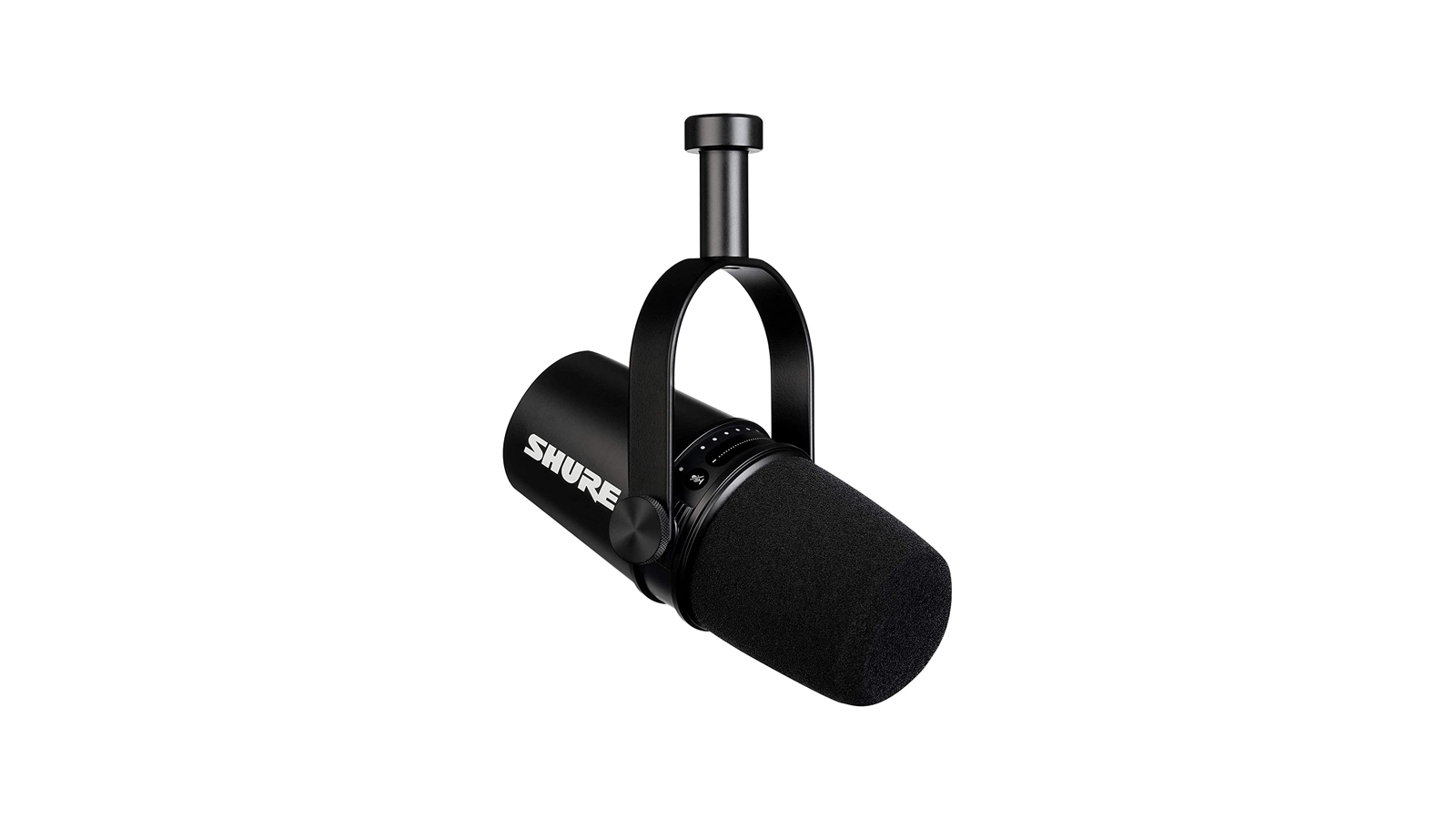MusicRadar Verdict
The Shure MV7 is a well-priced, well-made mic with a huge amount of genuinely useful functionality. Easy enough for a beginner, yet with enough quality to impress the pro-user, the MV7 is an outstanding option.
Pros
- +
Suits a variety of applications
- +
Genuinely useful app
- +
Reliable build
- +
Easy to use
- +
Auto-level is a potential lifesaver
Cons
- -
Lightning cable sold separately
MusicRadar's got your back
What is it?
The Shure MV7 is, essentially, the famous mic brand’s play towards the entry-to-intermediate consumer microphone market. This demographic, which traditionally gravitates towards content creation and streaming over more traditional music applications, for example, is not short of options around this price bracket meaning Shure would need to do something special to cut through. With the MV7, however, they might just have done it. At a top level, what you’re getting is a dual XLR/USB output – more on this later – dynamic mic which is geared primarily towards capturing speech in its various forms.
These credentials are enhanced further by the MV7’s complementary mobile/computer app, MOTIV, which provides real-time tone correction and tools to elevate your sound further. Whether you’re aiming for BBC-style depth and tonality or something with a touch more high-end sparkle, the app takes care of everything. In practice, this greatly reduces the extent of any post production which is required, meaning you get ‘pro grade’ results without needing to be an audio engineer. You can see why this would appeal.
In seemingly a first for an online review of the Shure mics MV7, we’ve made it past the first paragraph without mentioning its most obvious reference point. The Shure SM7B is a natural place to offer comparison; both are from one of the world’s most respected mic brand and both deliver exceptional speech performance. The key difference, however, lies in the lower-cost MV7’s ability to work directly with your computer without need for a separate mixer or audio interface. How important exactly is this? Let’s take a look in more detail in this Shure MV7 review.
- Shure MV7 vs SM7B: which mic is right for you?
- Check out more of the best USB microphones
- And the best podcasting microphones for all budgets
- Save cash with the best cheap microphones
Performance and verdict
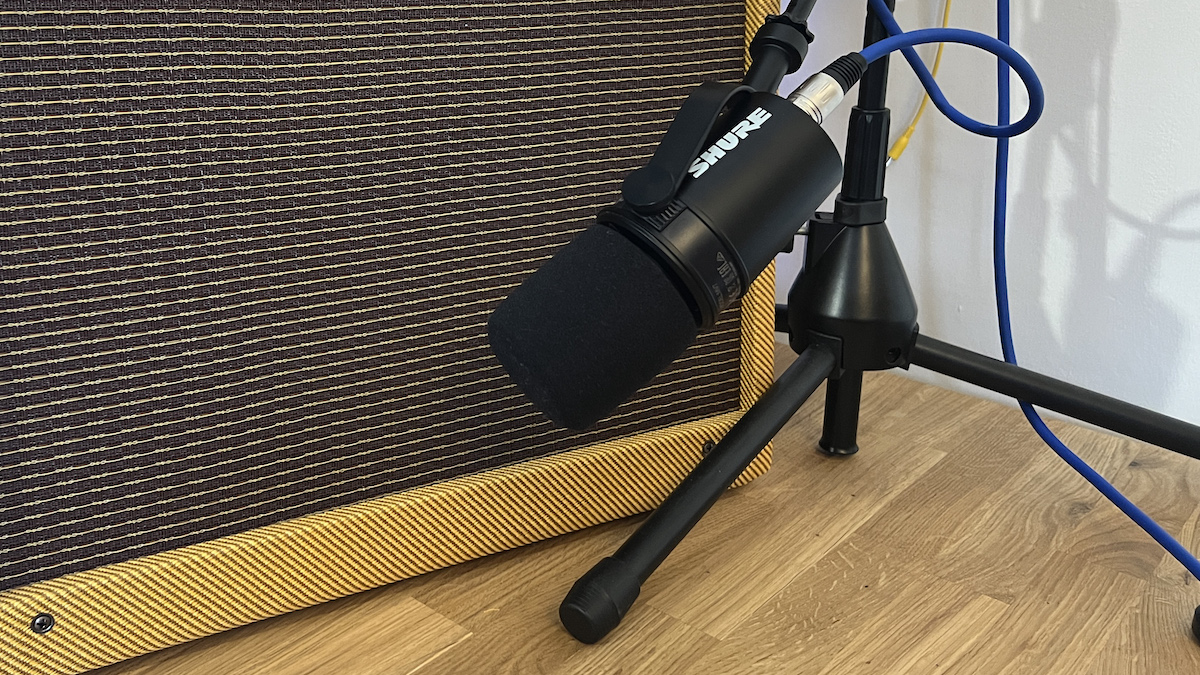
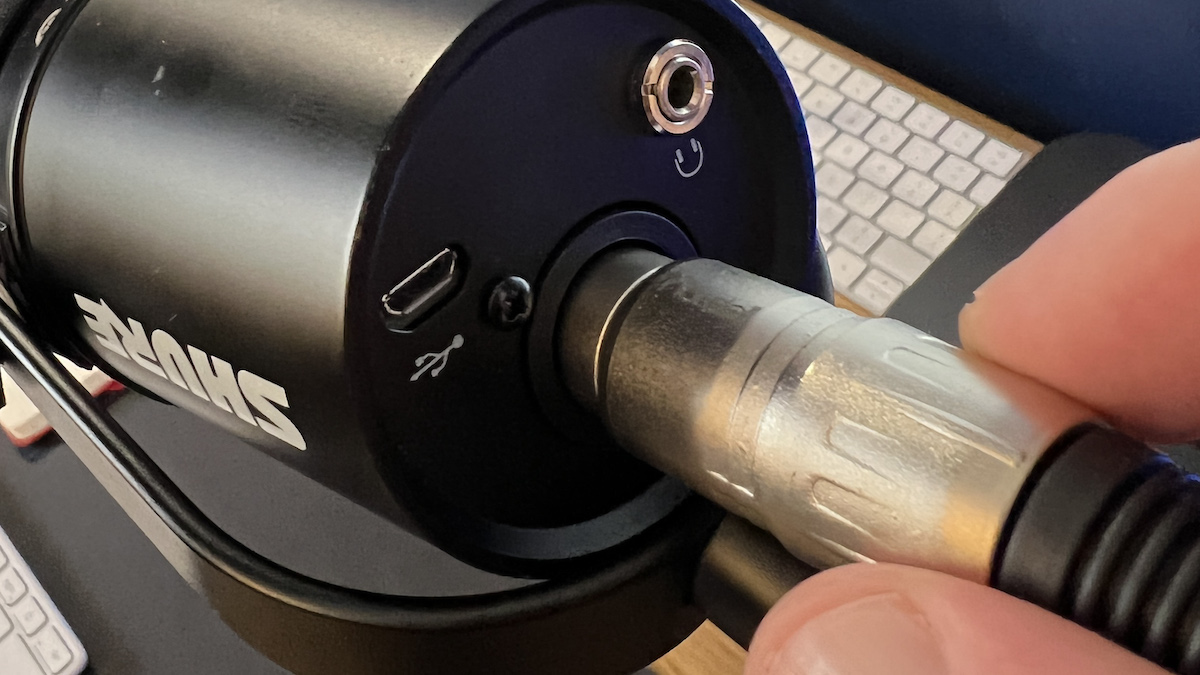
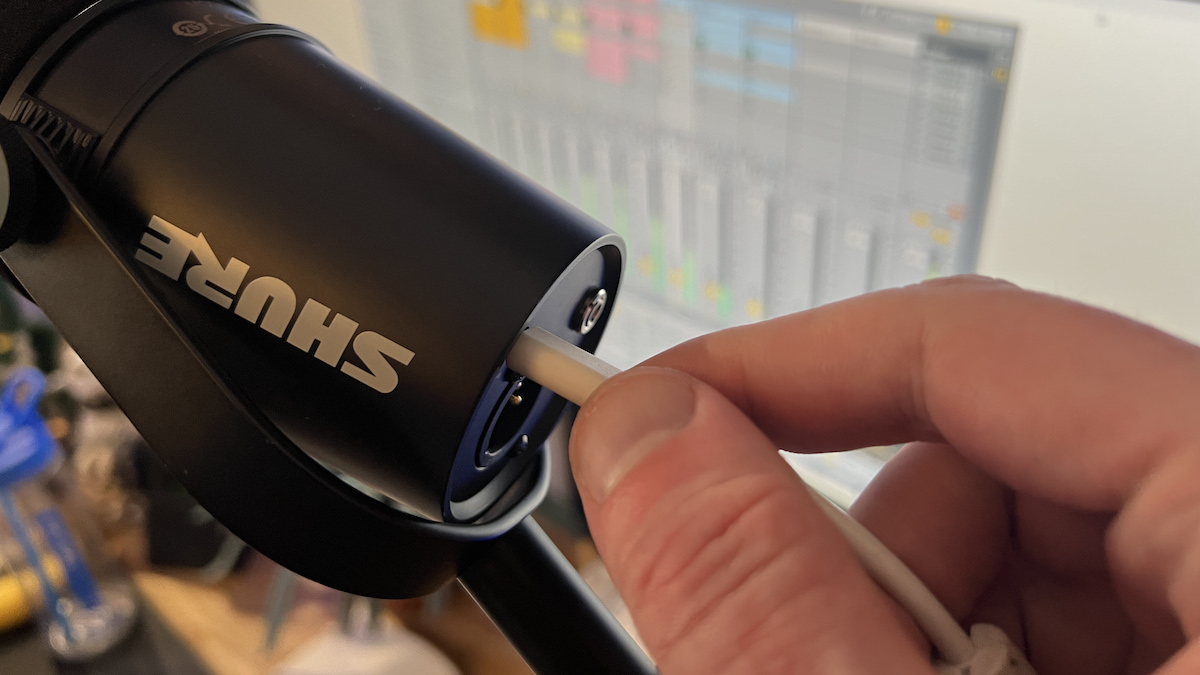
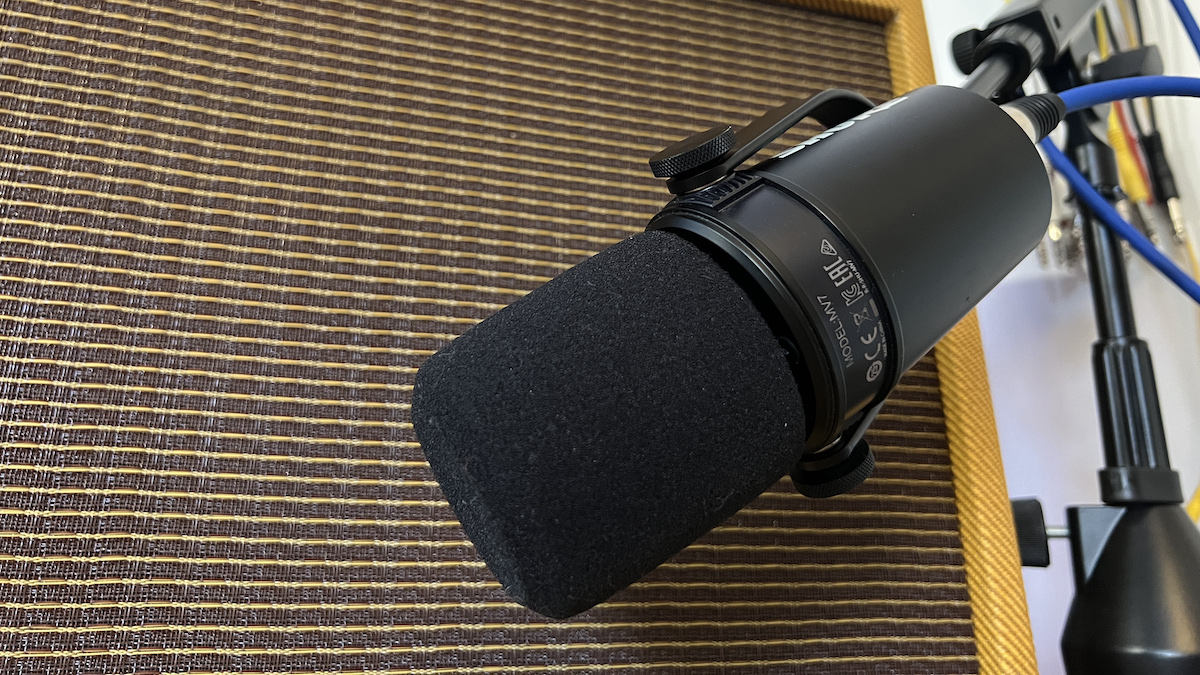
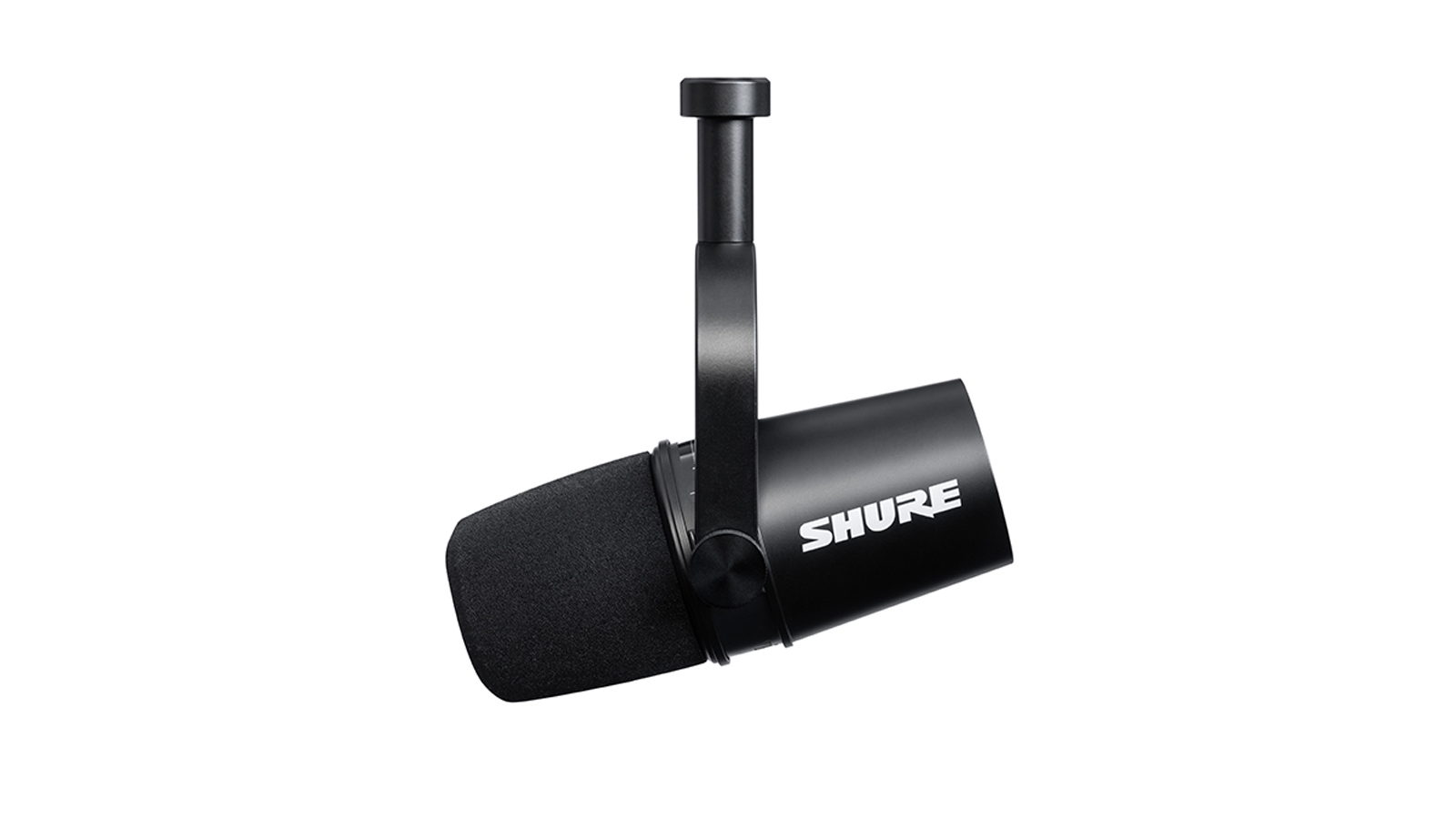
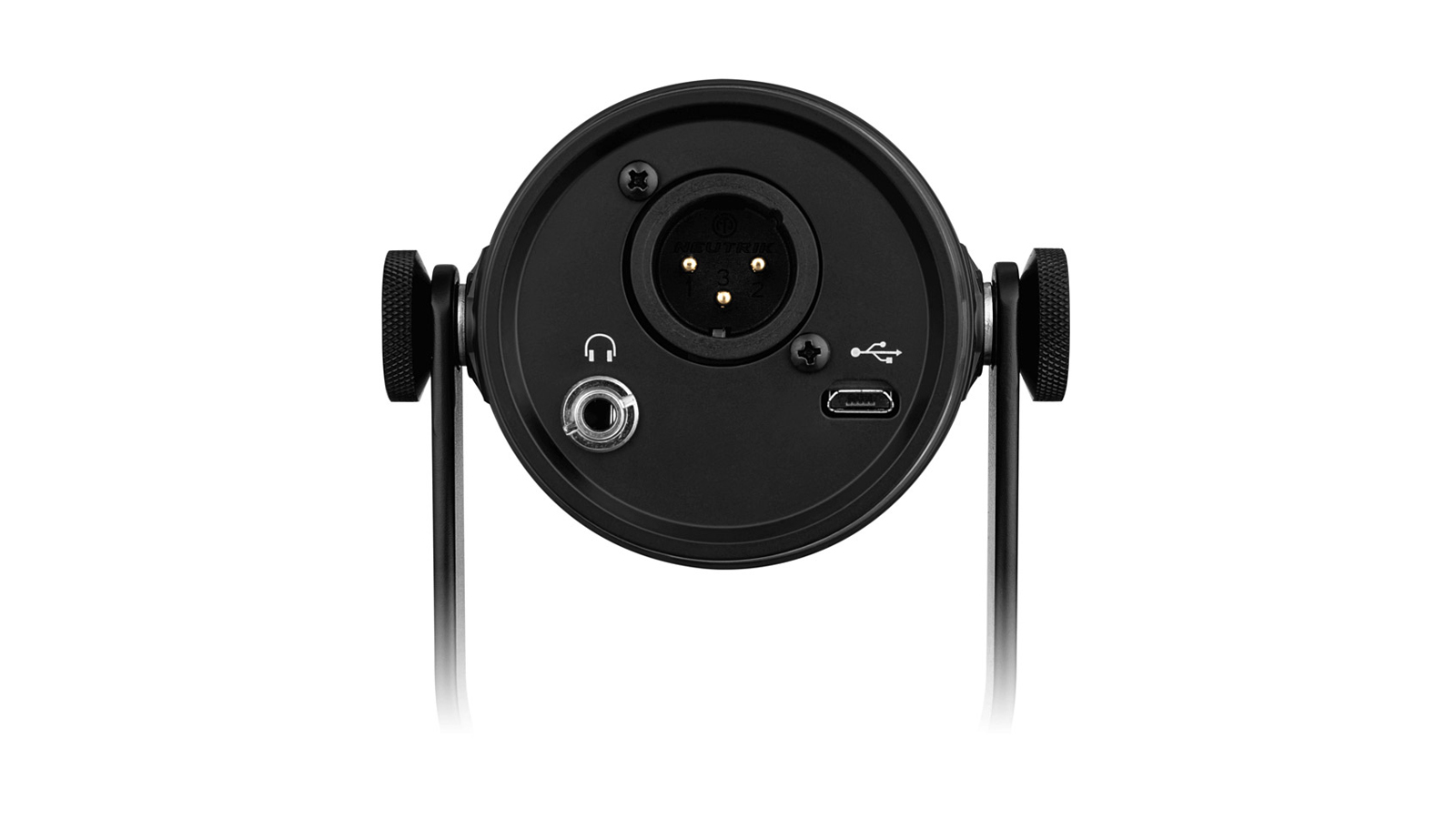
Out of the box, you’ll notice immediately that the Shure MV7 has a nice, reassuring weight to it. This isn’t going to blow over in a strong wind, and even if it were to fall, its solid build means it’s unlikely to suffer major damage. To the back of the mic, you’ll find three connection points; one for a micro-USB, one for an XLR cable, and a headphone out, while at the top is a touchstrip for controlling levels and muting the mic. It might seem strange in 2021 that Shure has opted for micro-USB over the now increasingly common USB-C, but it claims the MV7 doesn’t require the faster data transfer speeds so has stuck with the older connection point. This might be a personal preference but I always find USB-C less wobbly and better protected against accidental disconnections, but your results may vary.
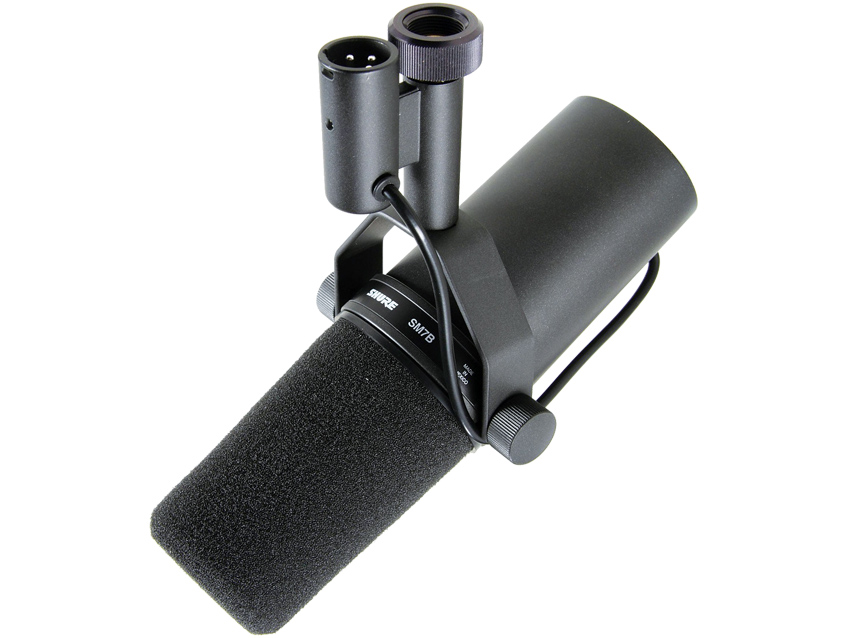
Shure SM7B
Audio Technica AT2020USB+
Blue Microphones Yeti Pro
In use, the Shure MV7 is a dream for beginners, or anyone who needs a mic but doesn’t necessarily need to know how it works. It is, in every sense of the word, a plug-and-play mic which will ensure it appeals to a variety of users. The traditional XLR output means the MV7 will connect to your audio interface or mixer as you’d expect, while the USB output enables you to connect directly to your computer or smart device and function as an interface itself. You can, thankfully, use both connection methods simultaneously which is great for recording a backup, although it’s worth pointing out Windows users might encounter some issues if using both the MV7 and a USB audio interface. This isn’t Shure’s fault - Windows famously isn’t great at handling multiple audio sources - but it is worth keeping in mind. Mac users simply need to create an aggregate device to use both at the same time.
If you do opt for USB, either into your computer or your smartphone/tablet, you’ll gain access to the complementary MOTIV app. MOTIV gives you a stack of options and functionality which go above and beyond what you’d expect. Everything from changing the tonality of your recordings through to auto-level control, which adjusts the mic’s input levels to ensure you’re not clipping your sound, elevating the MV7 above its competition in our eyes.
The Shure MV7 is a dream for beginners, or anyone who needs a mic but doesn’t necessarily need to know how it works.
What impressed us about the Shure MV7 was the fact it aims to do two things, and it achieves them both successfully. For less tech-savvy users, the MOTIV app and ease-of-use you get from the USB connection is ideal. It works in exactly the way you’d want it to, and is as simple as it gets thanks to helpful tools like the auto-level mode and voice isolation technology. Put simply, if you’ve got a voice it’ll sound great through the MV7.
Want all the hottest music and gear news, reviews, deals, features and more, direct to your inbox? Sign up here.
For studio users on the other hand, or anyone with the necessary extra gear, it functions as a simple, great quality ‘regular’ dynamic microphone. Neither group will feel short-changed, although the extra functionality gained from using the MV7 in USB mode will be a significant draw for podcasters, streamers and voice-over artists in particular. If you’re in that world and looking to upgrade, or even taking your first steps, there really are few better options than the Shure MV7.
Hands-on demos
Think Media
Alpha Gaming
Michael Tobin
Specifications
- Price: £259/$279/€269
- Microphone type: Dynamic
- Pickup pattern: Cardioid
- Connectivity: XLR, Micro USB
- Controls: Integrated touch control
- Audio quality: 24-bit/48kHz
- Contact: Shure
Chris Corfield is a journalist with over 12 years of experience writing for some of the music world's biggest brands including Orange Amplification, MusicRadar, Guitar World, Total Guitar and Dawsons Music. Chris loves getting nerdy about everything from guitar and bass gear, to synths, microphones, DJ gear and music production hardware.
